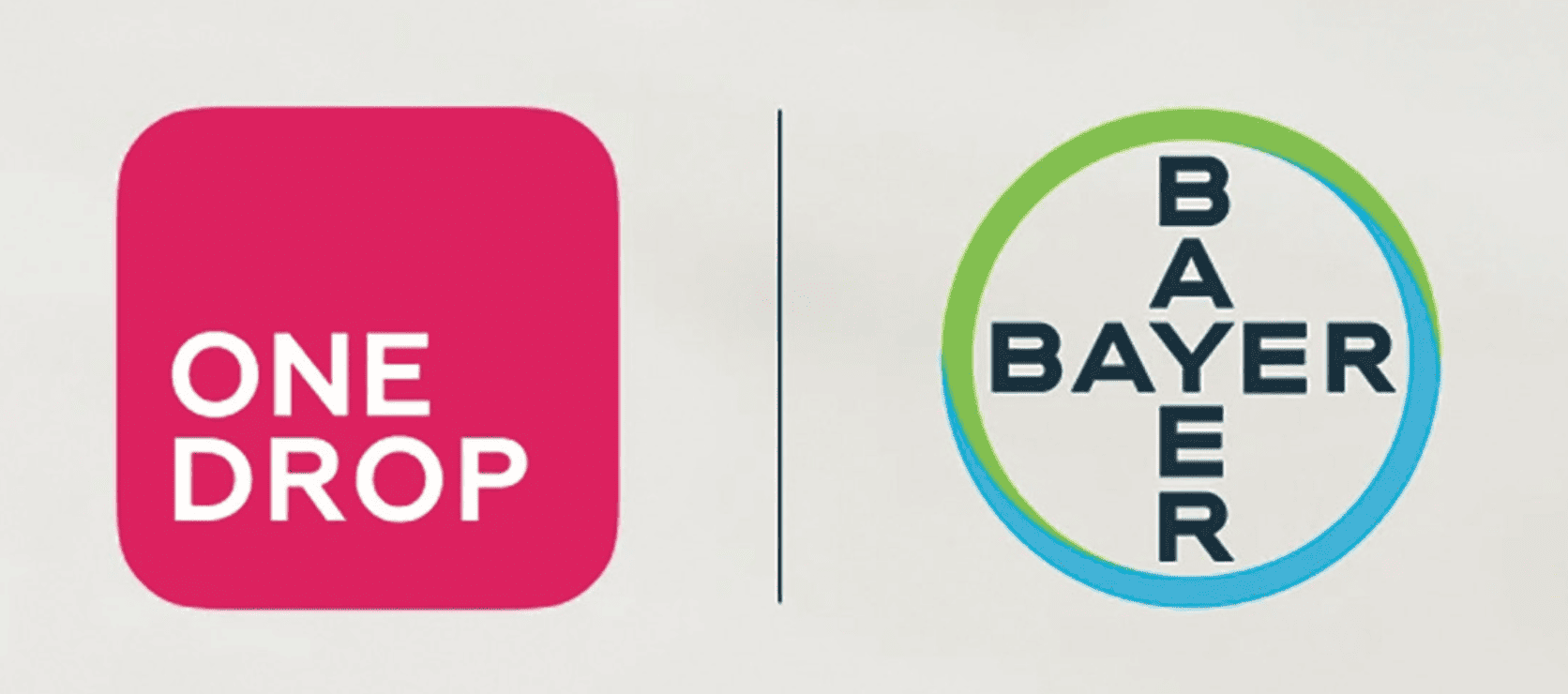
I am such a geek. Or so I was told by my daughter as I pored through my emails over coffee.
Her remark was engendered by my inordinate excitement over a news announcement that Bayer has extended its agreement with One Drop, the digital health company.
My daughter couldn’t quite grasp what the big deal was. After all, at 23 she’s heard me talking about digital health most of her life, ever since I coined the phrase ‘the information shift’ to describe one of the selection pressures acting on life sciences business models. “But this is so much more than digital!” I protested.
I confess that she was then on the receiving end of one of my impassioned soliloquies. If you can bear my proselytising for moment, I’ll share it because it is relevant for pharma, medtech and other life sciences companies.
A drop of the future
One Drop gets its name from its beginnings as a diabetes management company. It has an approved blood test for that condition but its positioning is based less on its glucose monitoring technology and more on its ‘whole person approach’ to managing what is, obviously, one of the world’s most important chronic diseases. And it hasn’t stopped there.
It’s extended the same idea to hyperlipidaemia and hypertension, the two other big chronic conditions whose populations overlap. Through its three million app users providing billions of data points, One Drop aims to allow individuals to predict and manage their health outcomes. In this, the company is not unique but it is a particularly interesting case.
Of course, One Drop is merely one raindrop in a downpour of digital health announcements. So why did I get so excited about the Bayer announcement?
Well, because they are really good examples of – and therefore evidence of – industry phenomena that I observed and predicted, first in my 2011 book ‘The Future of Pharma’ and then its follow up ‘Darwin’s Medicine’ in 2017. Those books covered all aspects of the Darwinian evolution of our industry but the One Drop/Bayer story fits with two of the themes I wrote about.
The future shaper
Firstly, I wrote about the rising importance of the ‘patient payer’. I observed that the failure of institutional healthcare systems to provide everything that was technically possible would lead to some patients filling that gap
for themselves.
In particular, I wrote about ‘self-manager’ and ‘future shaper’ business models that would use technology to address the needs of these people. Even then, the portents were clear: educated patients with less deference to professionals, crude wearables like step counters and rising OTC sales of old technologies, like blood pressure cuffs, that were once only found in clinics.
It was pretty clear even then that many of us, both diagnosed and currently well, wanted to be in control of our health and that, inevitably, companies would respond to that desire. So when I read One Drop’s website and positioning, it was a little bit spooky – not unlike when I read a childhood diary of mine in which I recorded my first inclinations to be a scientist.
What One Drop is doing today is exactly what I anticipated some years before they were founded. And like anyone else, I get excited when the real world confirms the ideas that fly around in my head.
Holobionts and capabileomes
The second way in which the Bayer announcement resonated with my evolutionary predictions was less about products and services and more to do with my predictions for how business models might evolve to deliver them.
Flipping through the pages of ‘Darwin’s Medicine’, I am reminded that I saw – and see – the challenge of business model design as one of capability acquisition. In short, you need more than a good idea and product. To deliver value, you need to assemble a complete ‘capabileome’ that includes a huge network of capabilities right across the value chain.
This is hard for any organisation and next to impossible for a start- up to do quickly. This, I predicted, would lead to the development of ‘holobionts’ – networks of firms that contribute complementary capabilities. Most pharma companies are now holobionts of partners, agencies and contractors.
And in Bayer/One Drop we see a holobiont business model designed to bring together capabilities that neither firm possesses in full. So reading the press release made me feel doubly smug. Not only did it confirm my business model prediction, it fitted in with how I saw it developing.
Allow me to apologise now if this column sounds immodest. I am not without sin, and pride, if it has some justification, is not the worst of the seven.
Besides, I’m not even claiming all the credit for my foresight. Like Isaac Newton said, we stand on the shoulders of giants. I’m just lucky to be standing on those of perhaps the greatest giant of all: Charles Darwin.




